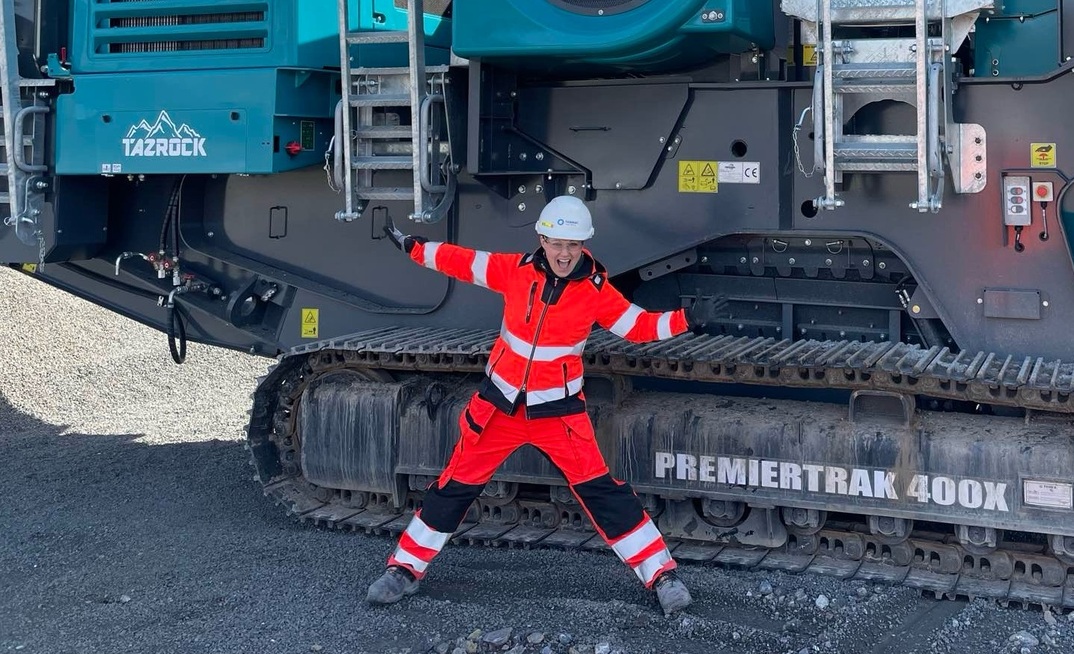Katherine Evans knows first-hand the effects of ill-fitting personal protective equipment (PPE) in mining.
In a career as a geologist that took her to coalfaces in her native Wales, ice-bound Canadian mines and offshore platforms, she learned that getting lumped with unsuitable PPE would keep her from working to her ability.
"I struggled with my manual handling and squatting to lift a core box, so I would start to look lazy. And when I worked underground because I was wearing men's boots, I used to trip all the time, so I looked clumsy, constantly moaning because I had shin splints," she told Mining Magazine this week.
"I was really fitting that stereotype that women don't belong here," she said. "[But] it was just my bloody PPE!"
YOU MIGHT ALSO LIKE
Evans has just been named one of Women in Mining's UK's 100 Global Inspirational Women in Mining for 2024, a recognition of her rising stature as an advocate for women in the sector.
She uses the prism of PPE to illustrate the issues causing women to leave the mining industry.
A mother of two, Evans started developing a network for women in mining in 2022, and then started her consultancy Bold as Brass last year after she "hit the glass ceiling" as a geologist.
She turned her capacity for hyper-focus from solving technical problems like coal cleaning to the issue of inclusive PPE for women in mining and construction.
"The most important [cause of attrition] is sexual threat, but [women's PPE] was something that could easily be changed because it's just a thing, it's not a mindset," she said. "I was so passionate about women being treated properly."
Ill-fitting PPE, like other failures to accommodate differences, can lead to women feeling out of place while on-site and overlooked for advancement.
"You leave, potentially, the industry, taking away all your knowledge that you've had for however long you've been there, all of your skills," she said.
Hi-vis, high impact
Evans is committed to her PPE cause.
Last weekend, she hit the gym for a "hideous" workout in full PPE. She explained that her gym instructors are now accustomed to her pitching up to a class in hi-vis and heavy boots.
"If you can do a high-intensity class for an hour with it on, you can definitely do your work in it," she explained, and will report her weekend's findings back to the manufacturer to share how their kit performed.
Evans pays close attention to a wide range of factors that could affect women, whether the way gear fits the female form or its ability to handle the shifting body temperature of a peri-menopausal woman. Even the placement of a seam is considered an injury risk.
She explained that there's a basic economic argument for paying closer attention to PPE, as PPE-related injury leads to a cascade of expenses. "If you've got somebody off work, that's more work for everybody else to pick up, or you have to get somebody in from an agency who is more expensive."
A procurement department that buys low-cost and unsuitable PPE creates a false economy. It directly affects productivity, creates unsafe conditions, often only lasts a few washes in an industrial laundry process, and indirectly contributes to worker attrition.
Evans found that the PPE that women need is being manufactured - but it is not being bought.
"I think we are pretty strong on what's available - if you know where to look. That's the problem because not everybody's making all the different things when it comes to actual female fitting PPE," she said.
Increasingly she works as a conduit between PPE manufacturers and the companies buying PPE for her operations. She found that PPE that fits women is manufactured but is not bought by companies. This could be due to ‘blind spots' or cutting corners on costs.
She has started to organise "try-on days" for companies, where she will get three or four brands she knows and trusts to bring their PPE range for women to test out.
When people experience PPE that fits, "they'll just pressurise their boss until the boss gets it for them - then they win," she said.
And increasingly, she is finding that many men have had their PPE needs overlooked too.
"I've learned so much from women that can actually go into the men's [PPE] as well," she said. "Our intersections are very similar, I've learned. I'm hoping that what I'm doing with this is helping men as well."
























